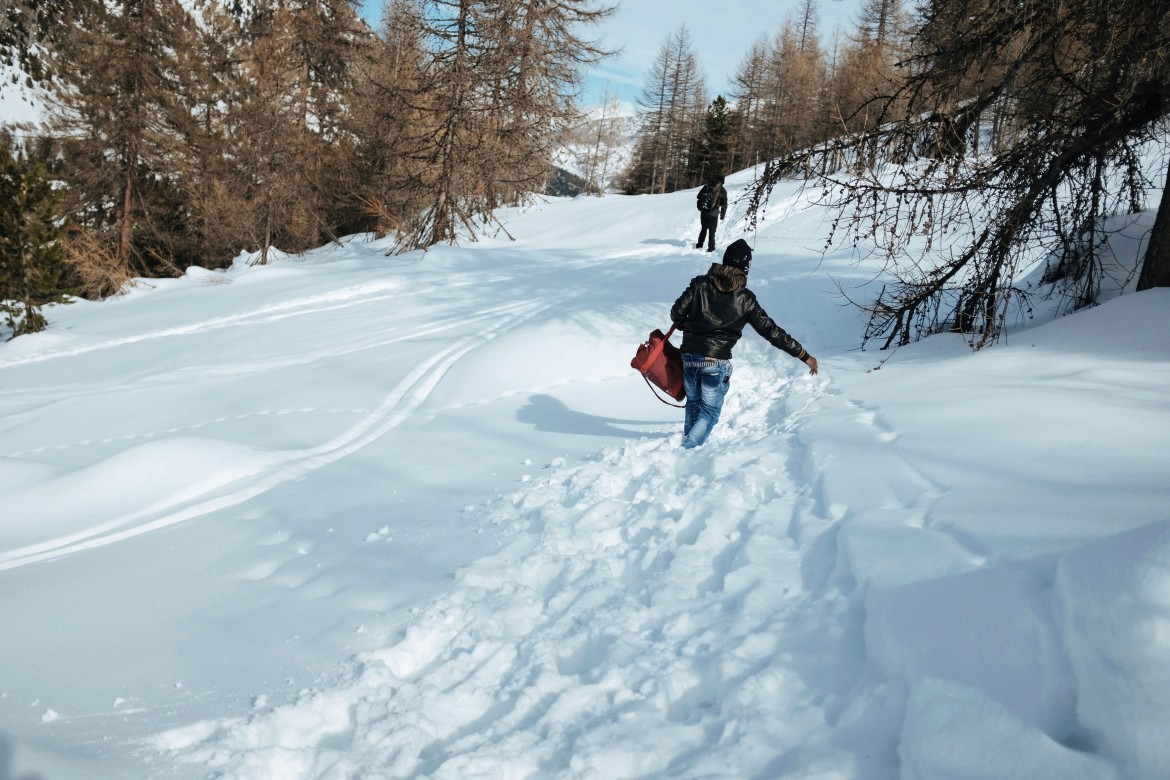Commentary
The border where Europe lost its soul
At the bottom of every chain of command is a particular person who executes an unjust order. And it is ultimately these people who bear full responsibility for their own abject actions.

Col de Montgenèvre, 1,900 meters above sea level, halfway between Briancon and Bardonecchia—it is on this border that the black heart of Europe beats nowadays. Here, the France of Emmanuel Macron has lost his honor, and the Europe of Juncker and Merkel its soul (or what little was left of it). In a few months, in a crescendo of arrogance and inhumanity, the French gendarmes who are guarding the border have staged a display of cruelty reminiscent of other times and other places.
It was in Bardonecchia that five armed police officers from the French customs police barged into the facilities for the reception and support of migrants managed by the Rainbow4Africa association, to force a young black man travelling from Paris to Rome with valid papers to undergo a humiliating urine test, after they bossed around, threatened and humiliated all those present.
In front of that same building, in February, the same French customs agents dumped Beauty, a 30-year-old migrant, like she was garbage—seven months pregnant and sick with end-stage lymphoma that made her unable to breathe. She had the proper papers, but Destiny, her husband, didn’t, so the tireless border patrol forced them off the bus from Clavier Oulx that would have taken them to the promised land, where jus soli would allow their child to be born European. Indifferent to the desperate condition she was in, they abandoned her out in the freezing cold.
She was rescued by the Rainbow4Africa volunteers, who took her to the hospital and from there to the Sant’Anna clinic in Turin, Italy, where an exceptional medical team, skilled and humane, were at least able to save the baby, who was born weighing just 700 grams and who received the name Israel.
And it was these same vicious border cops, on the same accursed border, who on March 10 intercepted the car of Benoit Ducos, an Alpine guide and humanitarian volunteer who had just rescued a nine-month-pregnant woman on the snowy trail. They proceeded to charge him with a “crime of compassion” which (in the upside-down world of these unnatural laws) could cost him five years in prison. Ducos is an upright man, and he holds his head high. “I just did the natural thing,” he says. Those who went after him are different: callous, brutal, deaf to any mention of even the most generic notion of human solidarity—that is how those who have seen them at work describe them.
It is impossible not to conclude that behind this recurring behavior there are orders from above. It must be that the shame of Montgenèvre has behind it the shame of the Elysee Palace, together with the signature of Emmanuel Macron, who styles himself a champion of Europeanism and freedom in his speeches, understanding towards Italy and criticizing the fact that Italy is being left without support to manage the migrant crisis, but who in reality is building up walls like a garden-variety Orbán. But one must also underline that at the bottom of every chain of command there is a particular person who executes that order. And it is ultimately these people—who, in the snow at 1,900 meters above sea level, have harassed, insulted, and exposed other human beings to disease and death, persecuted rescuers and oppressed the weak—who bear full responsibility for their own abject actions.
It is not always like this. There are times when ultimate good and evil do not reveal themselves in such clear opposition. But there are others times—and this is one of those times—when the opposites stand in sharp contrast.
“Angels” and “demons” now come to view in stark opposition, divided by the razor wire of choice. One sees this in the mountain guide who rescues people, putting one’s profession in the service of humanity, or, on the contrary, in the public prosecutor who files charges against those who save people, whether at sea or in the mountains. One sees it in the doctor who is fighting to save a life, or, on the contrary, in the agent who is indifferent, and perhaps is comfortable setting obstacles to that care. Today the options are clear before us, and everyone is asked to make their choice.
It is good that today many people, encouraged, indeed, by a sense of national pride, are taking the side of the “angels,” and demanding that the French be punished for their injustices. It is necessary that our authorities take the French to account for the serious violations they have committed. It would be even better if, starting from this lesson, we would learn how to behave right when it comes down to us—each of us, whether on the ground or in Parliament—to show that we belong to the ranks of those who know what justice and humanity are, and who want to put them into practice on a daily basis.
Originally published at https://ilmanifesto.it/la-frontiera-dove-leuropa-ha-perso-lanima/ on 2018-04-01
